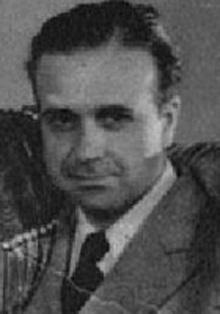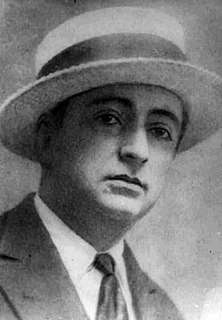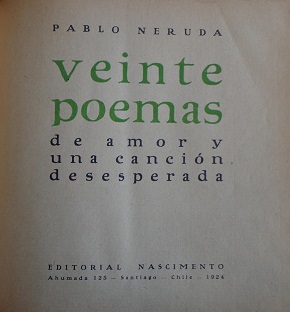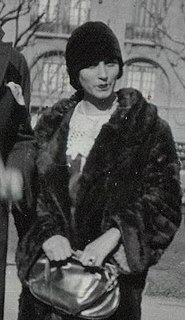
Nicanor Segundo Parra Sandoval was a Chilean poet and physicist. He was considered one of the most influential Chilean poets of the Spanish language in the 20th century, often compared with Pablo Neruda. Parra described himself as an "anti-poet," due to his distaste for standard poetic pomp and function; after recitations he would exclaim "Me retracto de todo lo dicho".

Vicente García-Huidobro Fernández was a Chilean poet born to an aristocratic family. He promoted the avant-garde literary movement in Chile and was the creator and greatest exponent of the literary movement called Creacionismo ("Creationism").

Rafael Alberti Merello was a Spanish poet, a member of the Generation of '27. He is considered one of the greatest literary figures of the so-called Silver Age of Spanish Literature, and he won numerous prizes and awards. He died aged 96. After the Spanish Civil War, he went into exile because of his Marxist beliefs. On his return to Spain after the death of Franco, he was named Hijo Predilecto de Andalucía in 1983 and Doctor Honoris Causa by the Universidad de Cádiz in 1985.

Casa de Isla Negra was one of Pablo Neruda's three houses in Chile. It is located at Isla Negra, a coastal area of El Quisco commune, located about 45 km south of Valparaíso and 96 km west of Santiago. It was his favourite house and where he and his third wife, Matilde Urrutia, spent the majority of their time in Chile. Neruda, a lover of the sea and all things maritime, built the home to resemble a ship with low ceilings, creaking wood floors and narrow passageways. A passionate collector, every room has a different collection of bottles, ship figureheads, maps, ships in bottles, and an impressive array of shells, which are located in their own "Under the Sea" room.

Óscar Arturo Hahn Garcés is a Chilean writer and poet, and a member of the literary generation of the 1960s. Hahn has won multiple distinguished awards, notably the National Prize for Literature (Chile) and the Pablo Neruda Ibero-American Poetry Award.

María Luisa Bombal Anthes was a Chilean novelist and poet. Her work incorporates erotic, surrealist, and feminist themes. She was a recipient of the Santiago Municipal Literature Award.

Ricardo Eliécer Neftalí Reyes Basoalto, better known by his pen name and, later, legal name Pablo Neruda, was a Chilean poet-diplomat and politician who won the Nobel Prize for Literature in 1971. Neruda became known as a poet when he was 13 years old, and wrote in a variety of styles, including surrealist poems, historical epics, overtly political manifestos, a prose autobiography, and passionate love poems such as the ones in his collection Twenty Love Poems and a Song of Despair (1924).

Guillermo de Torre was a Spanish essayist, poet and literary critic, a Dadaist and member of the Generation of '27. He is also notable as the brother-in-law of the Argentine writer Jorge Luis Borges.

Carlos Francisco Borcosque Sánchez was a Chilean film director and screenwriter involved in the production of the Cinema of Argentina.

Joaquín Edwards Bello was a Chilean writer and journalist of British descent.

Twenty Love Poems and a Song of Despair is a collection of romantic poems by the Chilean poet Pablo Neruda, first published in 1924 by Editorial Nascimento of Santiago, when Neruda was 19. It was Neruda's second published work, after Crepusculario and made his name as a poet.

Gregory Dawes is a distinguished professor of Latin American Studies at North Carolina State University. He has written on Latin American studies and literary theory and is the editor of A Contracorriente, an online academic journal dedicated to approaching social history and Latin American literature from a left-wing perspective, and managing editor of Editorial A Contracorriente, the Journal's publishing spin-off.

Angel Cruchaga Santa María was a Chilean writer. He won the Chilean National Prize for Literature in 1948.

Pablo de Rokha was a Chilean poet. He won the Chilean Premio Nacional de Literatura in 1965 and is counted among the four greats of Chilean poetry, along with Pablo Neruda, Vicente Huidobro and Gabriela Mistral. De Rokha is considered an avant-garde poet and an influential figure in the poetry scene of his country.

Los versos del capitán is a book by the Chilean poet Pablo Neruda, winner of the Nobel Prize in Literature in 1971. It was published for the first time anonymously in Italy in 1952 by his friend Paolo Ricci. The book with his own name in it was first published in Chile, in 1963, with a note written by Neruda explaining why he used anonymity. It is considered that "Los versos del capitan" were dedicated to Neruda's lover Matilde Urrutia, whom he married a few years later.

Altazor o el viaje en paracaídas, or simply Altazor, is the magnum opus of Chilean poet Vicente Huidobro, published in Madrid in 1931.
Margarita Aguirre was a Chilean writer and critic. She was the friend and first biographer of Nobel-winning poet Pablo Neruda.

Matilde Huici Navaz was a Spanish educator and lawyer. In addition to her collaboration with María de Maeztu in the Residencia de Señoritas, first official center in Spain established to promote university education for women, and the Lyceum Club Femenino, association of women, she was co-founder of the Association of Spanish University Women and Spanish delegate of the Advisory Commission for Social and Humanitarian Issues of the League of Nations. Exiled in Chile since 1940, Huici founded in 1944 the School of Párvulos Educator of the University of Chile and developed an intense pedagogical activity.

Blanca Luz Brum was a writer, journalist, poet and artist from Uruguay.

Marina Latorre Uribe is a Chilean writer, journalist and gallerist.



















